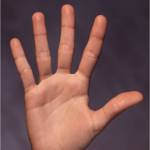25 Aug My password: If only I could put my fingers on it

Hackers can guess 76 percent of the passwords in a data breach according to Agent & Broker magazine. As noted in recent local and national news stories, people always are scratching at your online door to obtain your data either directly or through someone else – like a big retail chain or a local merchant. If your account becomes vulnerable, your next and best line of defense is your password. Its strength can save you a lot of anguish. So, what makes a strong password – one that you can remember?
First and foremost, don’t do the expected such as linear number sequences (e.g. 987654321) or key strokes (e.g. QWERTY). Also avoid family member names, birthdates or social security numbers.
According to Slate Magazine, the second most popular password is “password” with the most popular being “123456.” Really? The article discusses the “25 Worst Passwords” and includes some amusing commentary.
Here are some suggestions that can keep your passwords strong, fresh and memorable.
- Mix it up; use at least eight characters of which one is a number, one upper case, one lower case and one symbol (cLaRk!nsurance2014)
- Use a phrase you can easily remember and has meaning for you (“Don’t let the bed bugs bite” can become “DoLeThBeBuBITE!”
- Another is to use a string of numbers that have meaning to you; football scores, SAT scores, a childhood telephone number, etc.
- If you use just one password, tailor it the site you’re using by adding the initials of the site and a symbol that you change quarterly (cLaRk!nsuranceMNS#)
Despite recent high profile data beaches, a very small percentage of Americans match their degree of worry with a change in behavior. Think of your own passwords – when was the last time you updated them? To help yourself avoid the hackers, put a reminder in your calendar to change those passwords every four to six months.
Another common but risky practice is putting your passwords in writing then leaving them next to or close to your computer at home or work. Some security advisors say never write down your passwords – keep them on a USB stick that is, you guessed it, password protected and always in your possession.
If you are ever hacked, have your identity stolen, or have physical break-in at your home or place of work, immediately change all passwords as you can’t tell what the intruder may have taken.
You also may want to consider password management software that comes in a variety of options. One configuration to consider among the offerings is “two-factor” verification in which the user’s password automatically generates a text or phone call from your vendor that generates a unique second password that you must enter to gain access to your device. Some may consider that akin to wearing belts and suspenders but the alternative is to risk your pants falling down in a very embarrassing and costly fashion.
Do a web search to determine which software best suits your needs.
You also may recall just about every spy movie in which either the good guys or the bad guys do horrible things to obtain people’s finger prints in order to access vaults or computer systems. Though often considered the stuff of Hollywood, the reality may soon be that retinal or fingerprint scans are our standard and unique point of entry to our data. It certainly would eliminate the old phrase: Now, !fiOnlyCouldPutMy5FingersOnIt!



